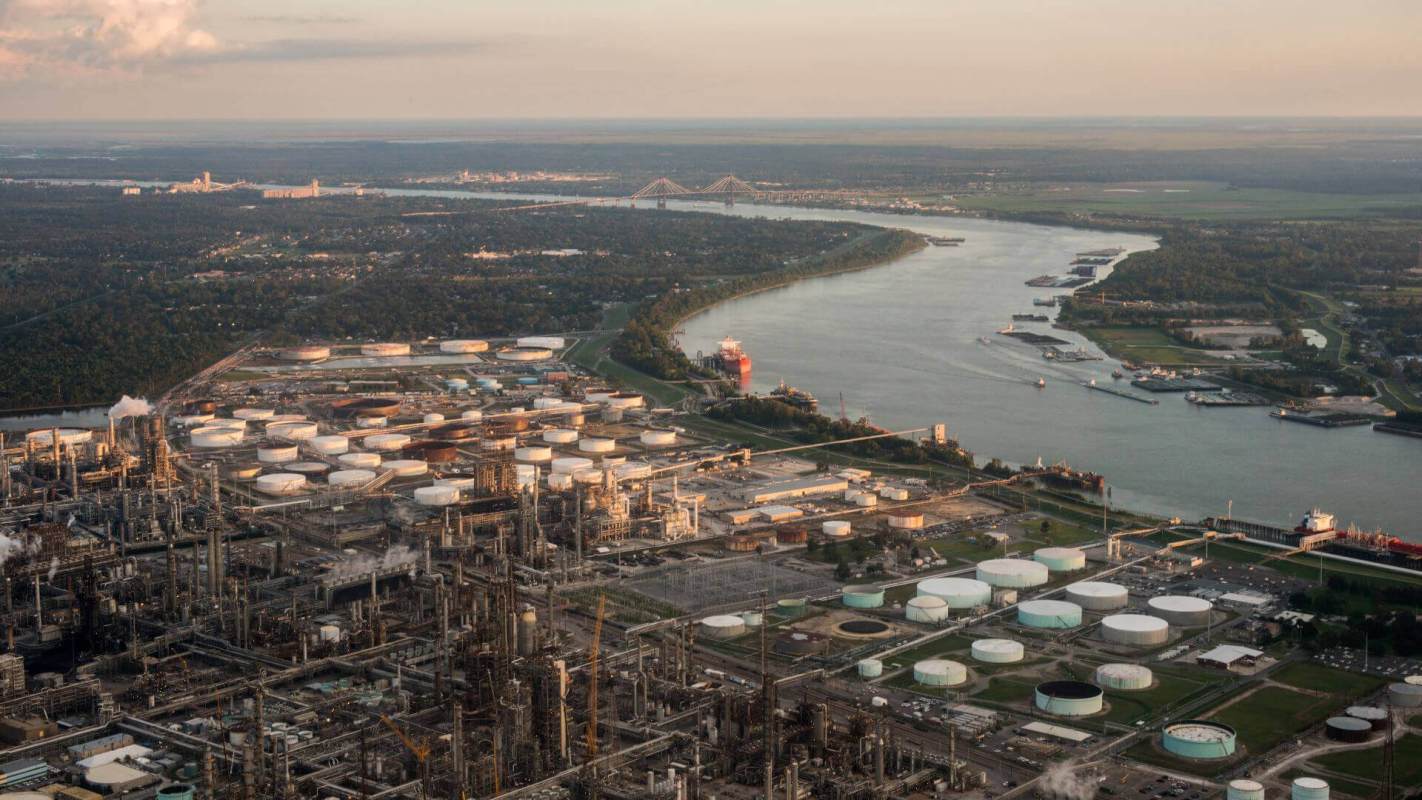Residents of St. James Parish in Louisiana are celebrating after recent legal victories stopped two petrochemical facilities from being built, which would have endangered their health.
St. James lies in an area along the Mississippi River known as "Cancer Alley." The region has more than 150 petrochemical refineries and plants, which are harming local communities and families, causing cancer rates to be over 50 times the national average.
Back in 2018, Formosa Plastics, a company based out of Taiwan, announced it was going to launch one of the biggest petrochemical projects in Louisiana's history right in the heart of Cancer Alley.
When Sharon Lavigne, the leader of the nonprofit Rise St. James, learned of the plans, she knew she had to fight back.
"Formosa was wrong to even want to come in here and poison us because we're already being poisoned," she told Grist.
Two big wins
Rise St. James, with the help of Earthjustice, a legal aid organization, halted both South Louisiana Methanol and Formosa Plastics from constructing enormous facilities, which were predicted to spew large quantities of cancer-causing pollution into the air.
On Sept. 9, the Louisiana Department of Environmental Quality announced that it was withdrawing South Louisiana Methanol's permit to build a new methanol facility. Just five days later, a Baton Rouge judge rejected Formosa's air permit, saying the corporation's environmental analyses were flawed.
These wins are shocking to many, as corporations like Formosa Plastics have immense power and billions of dollars. Formosa's proposed facilities, oddly named the "Sunshine Project," would have cost $9.4B to build and would have spanned over 2,400 acres.
Bad for our health and the planet
The negative impact of these petrochemical plants, which produce pesticides and plastics from dirty energy sources like oil and methane gas, would have spanned far wider than Cancer Alley.
They would have also contributed to the overheating of our planet and added to the amount of plastic waste in the environment.
The Sunshine Project alone would have emitted roughly as much planet-warming pollution as 3.5 coal plants and could have tripled the amount of cancer-causing pollution in the region.
'Goliath is wobbling'
Thanks to Rise St. James, Earthjustice, and many others, citizens of Cancer Alley don't have to deal with these additional burdens.
Corinne Van Dalen, an Earthjustice lawyer, explained to Grist just how significant these wins are.
"This predominantly Black area was once seen as ground zero for new petrochemical developments," she said. "And the residents galvanized this enormous campaign and they fought and they fought and they're winning. Goliath is wobbling."
Follow The Cool Down on Instagram and subscribe to our newsletter.








